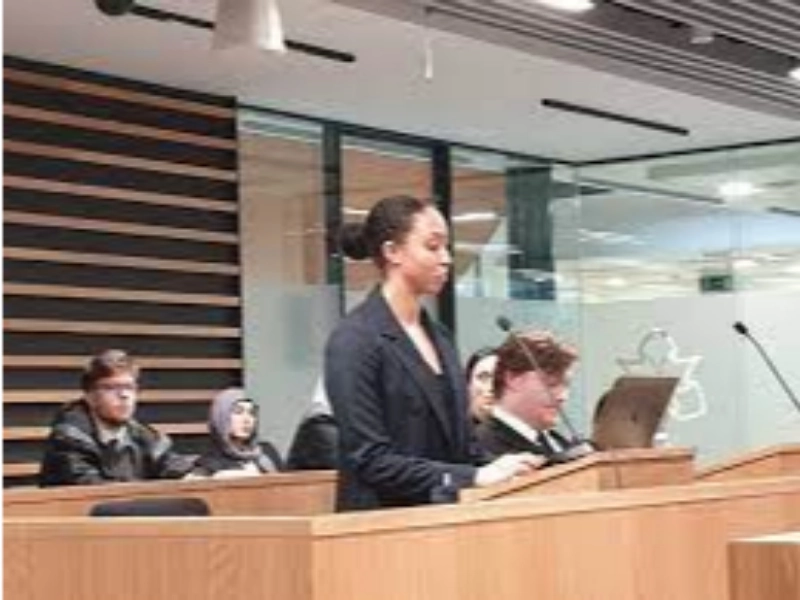Legal services assist people in protecting their rights, navigating complicated legal systems, and resolving conflicts. They can assist people in averting potentially disastrous situations like homelessness and unlawful evictions. Economics studies demonstrate that, putting ideology aside, civil legal services save public money by averting situations that would otherwise necessitate their use. This increases the services' political attractiveness and could lead to the creation of new private funding sources.

 Civil legal aid helps people with their complex legal matters. It is offered through staff-based legal services programs, pro bono attorneys, paralegals, and law students; self-help options like self-representation centers and downloadable court forms; and community education through workshops, phone help lines, partnerships between the legal and medical fields, and online information and forms. It receives the least funding of all the human services, nevertheless.
According to economic analysis, civil legal assistance saves money for the public coffers by preventing homelessness, securing health care coverage, preventing domestic violence injuries, and reducing other public costs. Seeing civil legal assistance as a budgetary policy that benefits society expands its political appeal and raises the possibility that funding will be increased. It also serves to balance out politicized language when talking about the "justice gap."
Civil legal aid helps people with their complex legal matters. It is offered through staff-based legal services programs, pro bono attorneys, paralegals, and law students; self-help options like self-representation centers and downloadable court forms; and community education through workshops, phone help lines, partnerships between the legal and medical fields, and online information and forms. It receives the least funding of all the human services, nevertheless.
According to economic analysis, civil legal assistance saves money for the public coffers by preventing homelessness, securing health care coverage, preventing domestic violence injuries, and reducing other public costs. Seeing civil legal assistance as a budgetary policy that benefits society expands its political appeal and raises the possibility that funding will be increased. It also serves to balance out politicized language when talking about the "justice gap."
 The rights of those who are arrested or charged with crimes are safeguarded by criminal legal services. They are competent at reviewing the evidence, looking into potential defenses, and negotiating plea deals. They also take care of trial preparation and bail hearings. It can be challenging for criminal attorneys to strike a balance between objectivity and sensitivity. They might miss out on family gatherings while putting in long hours on cases.
Legal aid programs encourage citizens to engage in the legal system, which in turn fosters respect for the democratic rule of law. These consist of legal assistance clinics, mediation centers, and lok adalats. They also offer social workers and volunteer paralegals.
The largest American supplier of free civil legal aid is the Legal Aid Society. Millions of low-income families who make at least 125% of the federal poverty threshold are served by it. The programs offered by the group are concentrated on consumer rights, employment, and housing. In addition, it offers assistance to elderly individuals, disabled persons, and single parents.
The rights of those who are arrested or charged with crimes are safeguarded by criminal legal services. They are competent at reviewing the evidence, looking into potential defenses, and negotiating plea deals. They also take care of trial preparation and bail hearings. It can be challenging for criminal attorneys to strike a balance between objectivity and sensitivity. They might miss out on family gatherings while putting in long hours on cases.
Legal aid programs encourage citizens to engage in the legal system, which in turn fosters respect for the democratic rule of law. These consist of legal assistance clinics, mediation centers, and lok adalats. They also offer social workers and volunteer paralegals.
The largest American supplier of free civil legal aid is the Legal Aid Society. Millions of low-income families who make at least 125% of the federal poverty threshold are served by it. The programs offered by the group are concentrated on consumer rights, employment, and housing. In addition, it offers assistance to elderly individuals, disabled persons, and single parents.
 Government initiatives known as social services serve as safety nets for the elderly, youngsters without families, those struggling with mental health concerns, and a host of other groups. They play a crucial role in building a successful, diversified, and caring society.
Social-service programs encompass a variety of interventions aimed at assisting individuals in resolving personal issues or emergencies, such as locating housing or accessing healthcare. They can also foster a feeling of belonging by putting children in touch with others. Meals on Wheels, child care, and SNAP (formerly known as food stamps) are a few examples of social assistance initiatives.
The main provider of civil legal aid for Americans with modest incomes is the Legal Services Corporation. Reducing the "justice gap" between an individual's legal needs and the resources available to fulfill those needs is the organization's purpose. This includes dealing with issues including consumer debt, erroneous evictions, domestic abuse, and the denial of essential assistance. To deliver these services, the group collaborates with volunteers and neighborhood organizations.
Government initiatives known as social services serve as safety nets for the elderly, youngsters without families, those struggling with mental health concerns, and a host of other groups. They play a crucial role in building a successful, diversified, and caring society.
Social-service programs encompass a variety of interventions aimed at assisting individuals in resolving personal issues or emergencies, such as locating housing or accessing healthcare. They can also foster a feeling of belonging by putting children in touch with others. Meals on Wheels, child care, and SNAP (formerly known as food stamps) are a few examples of social assistance initiatives.
The main provider of civil legal aid for Americans with modest incomes is the Legal Services Corporation. Reducing the "justice gap" between an individual's legal needs and the resources available to fulfill those needs is the organization's purpose. This includes dealing with issues including consumer debt, erroneous evictions, domestic abuse, and the denial of essential assistance. To deliver these services, the group collaborates with volunteers and neighborhood organizations.